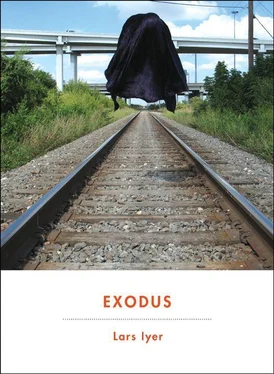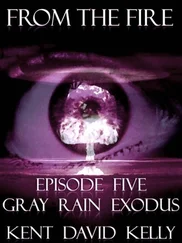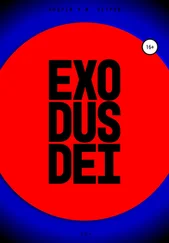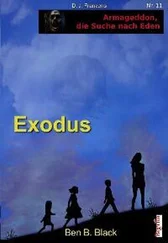They have a sense of what they want to achieve: an academic job, an academic career, but they know that there are very few such jobs, and very little chance of a career. They’ve fled from the world into academia, but they know they will most likely find themselves back where they came from, as though they’d dreamt up the entirety of their postgraduate lives.
Here we are among them, the angels, the Greenwich postgraduates. How slim they are! How tall , all dressed in black, and smoking their cigarettes! How intense they are, talking of their work, and weighing up the conference speakers! How focused , discussing ideas and only ideas …!
Postgraduates are the antennae of academia, W. says. They know everything about the latest thought from France, from Germany. About the latest commentaries on French and German thought by British and American academics. About the goings-on in British departments of philosophy, of continental philosophy. About possible job openings in this or that department, about possible postdoctoral research opportunities at this or that university.
There’s no thought as keen as postgraduate thought, we agree. Nothing as effort-filled, as intense. Nothing in which the stakes are clearer. Because they’re trying to escape, we agree. They’re trying to be better than they are.
Some of them are careerists, it is true. Some of them are trying to claw their way into a job; they’ll do anything to get there. Some of them are mediocrities-in-waiting, young fogeys with elbow patches on their jackets, ready to embody all the vices of full-time academic staff.
But other postgraduates are drawn to philosophy for the sake of philosophy, we agree. Others are drawn to thought for the sake of thought. They want to think against the world to which they will be forced to return. They want to think against Britain , this damnable country. They want a chance to protest in thought. They want to redeem their lives by thinking. To rise to a kind of secret glory, before it’s time for them to leave the university, and return to the world.
There’s no laughter like postgraduate laughter, W. says. There’s nothing as dark. Nothing as knowing. It’s death-row laughter, we agree. It’s the laughter of those condemned to death.
Because they are condemned to death, the postgraduates around us. Shown the greatest of vistas, the whole landscape of Old Europe at their feet, and then thrown out into the world, they’re condemned to a life without meaning, a life without succour, a life of shit in a world of shit …
They’re martyrs, the British postgraduates, we agree. They’re anchorites, like Saint Anthony in the desert. They’re exiles from the world. They’re proletariats , Marx would say. They’re individuals , Kierkegaard would say. They waiting for the revolution , Marx would say. They’re waiting for grace , Kierkegaard would say.
We are worn out by the postgraduates. They’re too much for us! They’re too brilliant! It’s like looking in a terrible mirror. It’s like seeing ourselves, robbed of self-satisfaction, robbed of our pandering. To think that we, too, were once postgraduates! To think that we, too, burned with the same black fire! And to think that by some strange miracle, by some lapse in the logic of the universe, we actually found jobs! To think that we — we — found ourselves in academic jobs!
My hotel room. W. takes his seat once again on the Chair of Judgement. It’s time to list my short-comings! It’s time to examine where I’ve gone wrong! To bury down to the root-cause!
‘Would you call yourself a moral man?’, W. asks. ‘Would you call yourself a man of honour ? Do other people look up to you ? Are others moved by you, inspired by you?’ A pause. And then: ‘Do you think you’ve touched other people’s lives — in a good way? Do you see yourself as a man of thought , a man of profundity , a man who will leave a legacy ?’
These are the questions that constantly circle in W.’s head, as he knows they do not circle in mine, he says.
‘How do you think you’ll be judged?’, W. asks. ‘As a serious man? As a man attuned to what matters most ?’ And then, ‘Will you be remembered as a great soul ? As a spiritual leader ?’ A pause. And then: ‘How do you understand your failure? Who do you measure yourself against? What standards have you failed to meet?’
Gin! W. demands. He wants a respite from his judgement.
W. is soothed by the Plymouth Gin botanicals. He can taste the oris-root and the coriander seeds. He can taste the orange peel.
Plymouth Gin is our realitätpunkt , W. says. Our rallying point, our place of safety. Sipping Plymouth Gin is always a homecoming, W. says. A return to what is most important.
If only we had some Vermouth, we could make Martinis, W. says. In the Plymouth Gin cocktail bar, they swill your glass with Vermouth, specially imported from America, and then pour it straight out. Only then do they fill the glass with Plymouth Gin and add a spiral of lemon peel, W. says. You need Vermouth only to pour it away, like an offering made to the gods, W. says.
More questions. ‘How many people do you think you’ve offended?’, W. asks. ‘How many people have you irritated? Have you angered ? How many people have tried to sue you?’, because he knows that some have. ‘How many people have tried to run you out of town?’
W. begins again. ‘How many appetites have you spoilt? How many people have you put off their dinner? What would you say is your most irritating trait? Your most rage-inducing one?’ And then, ‘What do you think your clothes say about you? And your hair? Your shoes? Does the way you dress befit your role as a would-be thinker? As a would-be philosopher ?’
Still more questions. ‘Do you think you have a noble face? A dignified bearing? Do you think you have the physiognomy of a thinker? An intelligent face? Do your rolls of fat make you uncomfortable? Do you think obesity gives you gravitas? Presence ?’ He pauses. ‘At what stage would you consider gastric bypass surgery ? Have you ever thought of liposuction ? Do you think you come across as a happy fat man, or as a sad fat man? At what stage will you have your mouth sewn up?
‘Of what are you most guilty?’, W. asks. ‘What is your greatest source of shame? What is your greatest failing? Do you think you’ve failed? Do you think you should be ashamed? Do you have any real sense of guilt?’ And then, ‘What do you think you add to the world?’, W. asks. ‘What do you think you subtract ? What is your net worth to existence? Do you think you’ve added to the balance of goodness in the cosmos, or of evil ? Are you on the side of the angels or the devils?’
‘How do you think you can make amends?’, W. asks. ‘ Do you think you can make amends? How do you think you can make reparations for damages to intellectual reputation? For emotional damage? For digestive damage?
‘Where do you think you stand in the great chain of thinkers ?’, W. asks. ‘With what historical figure do you most identify? What philosophical figure? How would you rank yourself in a list of contemporary philosophers?’ And then, ‘Do you think you’ve understood your time? Brought it to expression in some way? Are you a diagnoser of your times, or a symptom of your times? Are you a cultural physician , or a cultural patient ?’
Читать дальше












